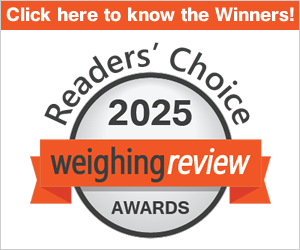[Article]: Legal for Trade vs. Non-Legal Weighing Systems: What You Need to Know
If your business sells goods by weight, your weighing equipment must be certified as "Legal for Trade". Using the wrong type of scale can result in legal penalties, financial losses, and loss of customer trust. Here's the key difference between legal-for-trade and non-legal systems — and why it matters for your operation.
What Is Legal for Trade?
"Legal for Trade" refers to weighing equipment that complies with national or international metrology standards (such as OIML in Europe or NTEP in the U.S.) and is certified for commercial transactions. These scales are tested for accuracy, repeatability, and tamper resistance, and are approved for use in environments where goods are sold by weight, volume, or count.
Key Differences
| Feature | Legal for Trade | Non-Legal |
|---|---|---|
| Certification | Yes (OIML, NTEP, etc.) | No |
| Applications | Sales, commerce, billing | Internal processes, estimations |
| Accuracy Classes | High and regulated (e.g., Class III) | Varies by manufacturer |
| Tamper Protection | Required | Not required |
| Audit-Ready | Yes | No |
When Do You Need Legal-for-Trade?
- Retail sales by weight: Supermarkets, butcher shops, and bulk stores must use legal-for-trade weighing systems for checkout.
- Freight and logistics billing: Carriers and shipping providers must ensure that weights used for invoicing are legally compliant.
- Ingredient selling in food production: Food manufacturers selling raw materials (like flour, spices, or liquids) by weight must use certified equipment.
- Pharmaceutical transactions: Precise weight-based sales of chemical or medical substances require traceable and regulated weighing systems.
Benefits of Using Legal-for-Trade Scales
- Trust and transparency with customers and partners
- Protection from legal issues such as fines or revoked licenses
- Compliance with inspections and audits from regulatory agencies
- Improved reputation in competitive markets that value accountability
Conclusion
Using uncertified weighing equipment in commercial settings can lead to fines, customer disputes, and loss of compliance with trade laws. To protect your business and ensure fair trade practices, always verify that your weighing system is properly certified as Legal for Trade. Partnering with reputable scale providers ensures you meet all applicable regulations and industry standards.
Looking for the Right Scale for your Business?
At Weighing Review you will find articles and other contents about all type of scales and other weighing solutions such as technical articles, videos, case studies and guides. You can also search the Suppliers Directory and Marketplace to find the best supplier and product for your weighing needs.
























Interested? Submit your enquiry using the form below:
Only available for registered users. Sign In to your account or register here.